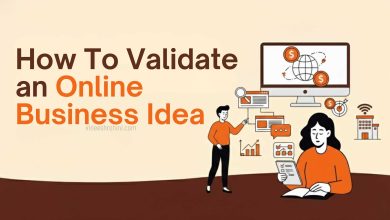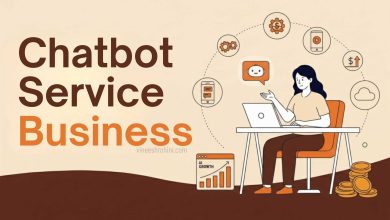Dropshipping vs Amazon FBA : Which Is Better in 2025 ?
Dropshipping vs Amazon FBA : In the dynamic world of online business, choosing the right ecommerce model can determine your success. In 2025, two major fulfillment strategies dominate the market: Dropshipping and Amazon FBA.
Table of Contents
Each has its own strengths, weaknesses, and ideal user profiles. Whether you’re a beginner with limited capital or an established entrepreneur aiming to scale, this guide explores the latest trends, costs, profitability, and long-term viability of both models.
What is Dropshipping?

Dropshipping is a retail business model where the seller doesn’t hold inventory. Instead, customer orders are forwarded to a third-party supplier who ships the product directly to the customer. The seller profits from the markup difference.
How Does Dropshipping Work in 2025?
You build a storefront using Shopify, WooCommerce, or similar platforms. You source products from global suppliers like AliExpress, Zendrop, CJ Dropshipping, or Spocket. When a customer places an order, your supplier ships it directly.
Also Read : What is Amazon Dropshipping? How to Dropship on Amazon
You never touch the product. You handle marketing and customer service while leveraging automation tools to streamline orders.
What is Amazon FBA?
Amazon FBA (Fulfillment by Amazon) is a service that allows sellers to send their products to Amazon warehouses. Amazon handles storage, packing, shipping, customer support, and even returns. Sellers get access to Prime customers and Amazon’s global logistics infrastructure.
How Does Amazon FBA Work in 2025?
You source or manufacture products and ship them to Amazon’s fulfillment centers. Once listed on Amazon, the platform manages everything from order processing to shipping. You focus on inventory restocking, optimizing product listings, and running Amazon ads.
Startup Costs – Which is Cheaper in 2025?
💸 Dropshipping Costs
- No upfront inventory purchase
- Store setup: ₹2,000–₹6,000/month
- Marketing tools & plugins: ₹5,000–₹10,000
- Paid ads or influencer marketing required
Estimated startup cost: ₹10,000–₹30,000
📦 Amazon FBA Costs
- Upfront inventory purchase required
- Amazon seller fee: $39.99/month (approx ₹3,300)
- Shipping to Amazon warehouses
- Amazon referral and FBA fees
Estimated startup cost: ₹1,50,000–₹3,00,000
✅ Winner: Dropshipping – much more affordable for beginners.
Profit Margins – Which is More Profitable?
📉 Dropshipping Margins
- 10%–30% on average
- High competition lowers prices
- Refunds and chargebacks can reduce profitability
📈 Amazon FBA Margins
- 25%–45% on average
- Better pricing control with private label
- Higher conversion due to Prime shipping
✅ Winner: Amazon FBA – delivers more consistent and higher profit margins.
Logistics & Fulfillment – Who Wins in Speed and Reliability?
📦 Dropshipping Fulfillment
- Slow shipping from China (7–30 days)
- Unreliable tracking and packaging
- Can hurt customer satisfaction
🚚 Amazon FBA Fulfillment
- 1–2 day Prime delivery
- Seamless returns and customer support
- Global trust in Amazon delivery standards
✅ Winner: Amazon FBA – superior logistics and shipping speed.
Scalability – Which Business Model Can Scale Faster?
📊 Dropshipping Scalability
- No inventory limits
- Easily test multiple products quickly
- Limited by supplier capabilities
📈 Amazon FBA Scalability
- Massive scale possible through Amazon’s infrastructure
- Inventory management becomes crucial
- Higher entry barrier but longer runway
🏁 Winner: Tie – Dropshipping is easier to scale fast, FBA is better for long-term scaling.
Branding & Customer Trust – Which Model Builds Better Loyalty?
🧢 Dropshipping Branding
- Generic, non-branded products
- Low trust factor
- Poor packaging and post-purchase experience
🏷️ Amazon FBA Branding
- Custom packaging & private labeling
- Enhanced brand trust
- Loyal customer base from Amazon ecosystem
✅ Winner: Amazon FBA – better for long-term brand building.
Risk Management – Which Offers More Control?
⚠️ Dropshipping Risk Profile
- No inventory risk
- High reliance on third-party suppliers
- Risk of payment holds or refunds
⚖️ Amazon FBA Risk Profile
- Upfront investment = higher financial risk
- Risk of account suspension
- Unsold stock = storage fees
✅ Winner: Dropshipping – lower upfront risk, but less operational control.
Marketing & Traffic – Who Has the Upper Hand?

📣 Dropshipping Marketing
- You are responsible for all traffic
- Facebook Ads, Google Ads, SEO, influencers
- High ad costs in 2025
🛒 Amazon FBA Marketing
- Built-in traffic from Amazon’s 300M+ users
- Amazon PPC ads
- Prime badge increases conversion rates
✅ Winner: Amazon FBA – has powerful built-in traffic sources.
Time Commitment & Automation – Which is More Hands-Off?
⌚ Dropshipping Time Needs
- Daily involvement in order management
- Customer support and dispute handling
- Can automate with tools like AutoDS, DSers
⏱️ Amazon FBA Time Needs
- Once products are at Amazon, it runs mostly on autopilot
- Minimal daily management
- Great for passive income after setup
✅ Winner: Amazon FBA – more automation, less ongoing work.
Long-Term Viability – Which Is Future-Proof in 2025?
🔄 Dropshipping Sustainability
- Fierce competition
- Increasing customer expectations
- Still viable with branding, but not easy
🚀 Amazon FBA Sustainability
- Rising demand for fast delivery
- Opportunities for global expansion
- Ability to build sellable brands
✅ Winner: Amazon FBA – more sustainable and future-ready.
Dropshipping vs Amazon FBA: Quick Comparison Table
| Feature | Dropshipping | Amazon FBA |
|---|---|---|
| Startup Cost | ✅ Low | ❌ High |
| Profit Margins | ❌ Low | ✅ High |
| Logistics | ❌ Unreliable | ✅ Fast & Trusted |
| Scalability | ✅ Easy Start | ✅ Better Long-Term |
| Branding | ❌ Weak | ✅ Strong |
| Risk | ✅ Low Investment | ❌ Inventory Risk |
| Automation | ❌ Limited | ✅ High |
| Traffic | ❌ Build From Scratch | ✅ Built-In Audience |
| Time Required | ❌ High | ✅ Low |
| Long-Term Viability | ❌ Risky | ✅ Sustainable |
Who Should Choose Dropshipping in 2025?
- You have very little startup capital
- You’re testing multiple products
- You want to learn digital marketing hands-on
- You’re looking for a side hustle or quick profits
Who Should Choose Amazon FBA in 2025?
- You have investment capital ready
- You want to build a brand
- You’re aiming for passive income
- You want to scale internationally
Conclusion: Dropshipping vs Amazon FBA – What’s Right for You in 2025?

Both Dropshipping and Amazon FBA are viable models for building online businesses in 2025. Dropshipping is a fantastic entry point for budget-conscious beginners who want to learn the ropes of ecommerce without risking large amounts of capital. It’s agile, flexible, and easy to set up—but the low margins and inconsistent logistics can limit your growth. On the other hand, Amazon FBA is a more serious, capital-intensive business model that can reward you with higher profits, better automation, and stronger branding potential.
Buy Now : Dropshipping Course
It’s ideal for those who are in it for the long haul. A smart strategy in 2025 is to start with dropshipping to test product-market fit and transition successful products into private-label Amazon FBA listings. This hybrid approach gives you the best of both worlds and builds a sustainable, scalable business over time.
Disclaimer : This article is for informational purposes only. Ecommerce businesses come with risks and results vary based on effort, competition, and market conditions. Always research thoroughly and consult a professional before investing.
Keywords : Dropshipping vs Amazon FBA – Dropshipping vs Amazon FBA 2025 – Dropshipping vs Amazon FBA in India



